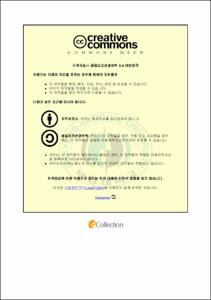항공사 승무원의 감정노동에 관한 연구-내외통제성의 조절효과를 중심으로
- Abstract
- Abstract
This study is about emotional labor in the airline industry, particularly the effects of personality and organizational culture on emotional labor as well as the mediating effects of emotional labor on service delivery level and turnover intention. In addition to that, the moderating effect of locus of control between emotional labor and service delivery level and turnover intention is tested.
Total 360 flight attendants of domestic airlines have been selected as the sample group for the study and 328 questionnaires were finally collected for the analysis. The SPSS 18.0 and AMOS 20.0 were used to analyze data through frequency analysis, reliability analysis, factor analysis and structural equation model.
The confirmatory factor analysis was conducted to evaluate convergent validity and internal coherence of exogenous and endogenous variables for purifying variables and validating the adequacy of measurement tools used in the research design. The result from the confirmatory factor analysis proved uni-dimensionality for all constructs.
Structural equation model(SEM) was to confirm the adequacy of the proposed research model. The model proved adequate as suitability was confirmed for all fit indices((df)=1037.508(723), GFI=.870, CFI=.945, TLI=.937, RMR=.050, RMSEA=.036). Based on the analysis results above, research hypotheses were tested.
The research findings can be summarized as follows.
First, extraversion has a negative impact on surface acting, whereas agreeableness and neuroticism have a positive impact on surface acting for the test of Hypothesis 1 (Personality has a significant influence on surface acting).
Second, extraversion and openness have a positive effect on deep acting for the test of Hypothesis 2 (Personality has a significant influence on deep acting).
Third, hierarchical culture and rational culture have no significant relationship with emotional labor both on surface acting and deep acting for the test of Hypothesis 3 (Organizational culture has a significant influence on emotional labor).
Fourth, deep acting has a positive relationship with service delivery level for the test of Hypothesis 4 (Emotional labor has a significant influence on service delivery level).
Fifth, surface acting have a positive impact on turnover intention for the test of Hypothesis 5 (Emotional labor has a significant influence on turnover intention).
Finally, locus of control has a moderating effect between deep acting and service delivery level, whereas locus of control plays no moderating role between surface acting and service delivery level for the test of Hypothesis 6 (Locus of control has a moderating effect on the relationships between emotional labor and service delivery level and between emotional labor and turnover intention.
The theoretical and practical contributions of the study are as follows. For the theoretical values of the study are two-fold. First, the study provides the theoretical support for the fact that managers in the airline industry can use five factors of personality for recruiting flight attendants.
Second, the first-order constructs of emotional labor, namely surface acting and deep acting, have significant effects on the different outcomes. Precisely speaking, surface acting has a positive effect on turnover intention, whereas deep acting has a positive effect on service delivery level. Deep acting has more positive influence in comparison to surface acting.
The practical values of the study are three-fold. First, airline companies should help those flight attendants who are characterized as extraversion, openness and neuroticism to manage their self-feeling. Moreover, they should use a personality test to be more objective in the recruiting process.
Second, deep acting is more important in the relationship between emotional labor (surface acting and deep acting) and service delivery level, whereas surface acting is important to understand turnover intention. Therefore, airline companies should develop a policy or a plan for educational programs to encourage deep acting and decrease surface acting to improve their competitiveness.
Finally, regarding to the moderating effect of locus of control, internal control promotes a higher service delivery level and as a result, those flight attendants who have self-regulation are more likely to deliver a better service to customers.
- Issued Date
- 2014
- Awarded Date
- 2014. 8
- Type
- Dissertation
- Publisher
- 부경대학교
- Affiliation
- 대학원
- Department
- 대학원 경영학과
- Advisor
- 전재균
- Table Of Contents
- 제 Ⅰ 장 서 론 1
제 1 절 연구의 배경 및 연구의 목적 1
1. 연구배경 1
2. 연구목적 4
제 2 절 연구의 방법 및 연구의 범위 5
1. 연구방법 5
2. 연구범위 5
제 3 절 연구의 구성 및 연구의 내용 6
제 Ⅱ 장 이론적 배경 8
제 1 절 성격특성 8
1. 성격의 개념 8
2. 성격유형의 선행연구 10
제 2 절 조직문화 14
1. 조직문화의 개념 14
2. 조직문화의 선행연구 16
제 3 절 감정노동 19
1. 감정노동의 개념 19
2. 감정노동의 선행연구 21
제 4 절 서비스 제공수준 26
1. 서비스 제공수준의 개념 26
2. 서비스 제공수준의 선행연구 27
제 5 절 이직의도 30
제 6 절 내외통제성 33
1. 내외통제성의 개념 33
2. 내외통제성의 선행연구 34
제 Ⅲ 장 연구방법 37
제 1 절 연구모형 및 연구가설 37
1. 연구모형 37
2. 연구가설 39
제 2 절 실증조사의 설계 46
1. 표본의 설계 및 자료수집 46
2. 변수의 조작적 정의 및 측정방법 47
3. 설문지 구성 52
4. 분석방법 53
제 Ⅳ 장 실증분석 54
제 1 절 표본의 인구통계학적 특성 54
제 2 절 측정도구의 신뢰성 및 타당성 검증 56
1. 탐색적 요인분석과 신뢰도분석 56
2. 확인적 요인분석 61
3. 판별타당성 분석 66
제 3 절 구조방정식 모형분석과 가설 검증 67
1. 구조모형의 적합도 67
2. 가설검증 68
제 Ⅴ 장 결 론 79
제 1 절 연구결과의 요약 79
제 2 절 연구의 시사점 및 한계점 83
참 고 문 헌 86
1. 국내문헌 86
2. 국외문헌 96
부 록 111
- Degree
- Doctor
- Files in This Item:
-
-
Download
 항공사 승무원의 감정노동에 관한 연구-내외통제성의 조절효과를 중심으로.pdf
기타 데이터 / 1.31 MB / Adobe PDF
항공사 승무원의 감정노동에 관한 연구-내외통제성의 조절효과를 중심으로.pdf
기타 데이터 / 1.31 MB / Adobe PDF
-
Items in Repository are protected by copyright, with all rights reserved, unless otherwise indicated.